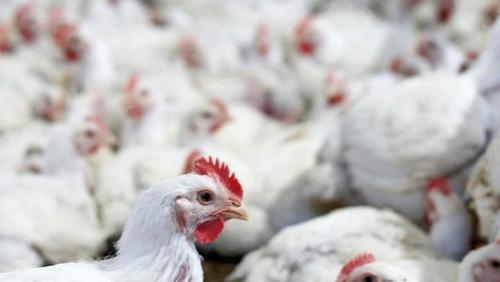News
SA Lifts Brazil Chicken Ban to Avoid Food Crisis, Boosts Biosecurity Strategy

New biosecurity blueprint rolled out as SA braces for potential bird flu threats
In a swift move to avoid a looming food security and employment crisis, the South African government has partially lifted its ban on chicken imports from Brazil. The decision, effective immediately, comes alongside the launch of a bold new national biosecurity and vaccination strategy aimed at preventing future outbreaks of avian flu and other animal-borne diseases.
This comes after the Department of Agriculture imposed a full ban on Brazilian poultry imports on 16 May, following a bird flu outbreak in the southern Brazilian state of Rio Grande do Sul. With mechanically deboned meat (MDM) supplies already running short, and polony and Vienna prices set to spike, the government opted for a compartmentalised approach, lifting the ban for all Brazilian states except the one where the outbreak occurred.
Saving Jobs, Safeguarding Meals
The decision was welcomed with relief by the South African Meat Processors Association (SAMPA), which warned that the suspension had threatened to trigger mass job losses and cause critical shortages of MDM — a low-cost protein used in Viennas, Russians, polony, braai wors, burgers, and frozen pies across South Africa.
“We are grateful for the urgency displayed,” said SAMPA chair Gordon Nicoll, thanking Minister John Steenhuisen and deputy director-general Dipeneneng Serage for averting what he described as a full-blown “social and humanitarian crisis.”
South Africa does not produce MDM in any meaningful quantity, relying on Brazil, the world’s biggest exporter of the product for about 95% of its imports over the past 12 years.
‘We Let Biosecurity Slide,’ Admits Minister
In an interview with The Citizen, Agriculture Minister John Steenhuisen didn’t mince words about how the country found itself here.
“We’ve allowed our biosecurity to slide quite dramatically,” he said, referencing recent disease outbreaks including foot-and-mouth and the devastating bird flu wave of 2022.
To combat this, the department is rolling out South Africa’s first national vaccination strategy for poultry, alongside new disease control regulations, stricter farm-level protocols, and prosecution for violators.
“This is new territory,” said Steenhuisen. “If it works, it will become the blueprint for how we protect our chicken sector going forward.”
High-risk regions mapped using historical outbreak data, will be prioritised for the new vaccination programme.
Chicken: The People’s Protein
At stake is the security of South Africa’s most consumed protein.
“If we have another outbreak of H5N1 here, it’s going to be disastrous,” said Steenhuisen. “We saw what happened last time, prices of chicken and eggs shot through the roof.”
Chicken is a staple for working-class families, often the only affordable meat on the dinner table. The 2022 bird flu scare already pushed poultry prices to unaffordable levels for many households, making the government particularly wary of another spike.
Eyes on Enforcement and the Entire Supply Chain
But it’s not just about imports and vaccines. The minister stressed that farm-level biosecurity is now being viewed as the first line of defence against future outbreaks.
“This virus spreads easily,” he warned, citing birds, water, droppings, and human movement as common transmission vectors. “Protocols must be followed to the letter.”
And there will be legal consequences for those who don’t. “Violators of movement and biosecurity regulations will face prosecution,” Steenhuisen said. “There could even be civil claims for losses due to negligence.”
In fact, he hinted at broader accountability: “It’s not just the farmer who has to take responsibility. It’s the entire value chain.”
Taking a Page from France
In crafting its response, South Africa took guidance from France’s handling of bird flu in its duck industry, which used a similar targeted lifting of bans and biosecurity upgrades.
This science-based approach informed South Africa’s decision to allow only “safe zones” in Brazil to export again. Importantly, there is no evidence so far that contaminated Brazilian meat ever reached South Africa — with forward and backward tracing now underway to confirm this.
South Africa is walking a tightrope: reopening critical imports to avoid a protein shortage, while launching a long-overdue overhaul of its disease defence systems.
The success of this plan will depend on vigilant implementation, agricultural cooperation, and swift accountability, because when chicken prices soar, it’s the poorest households that pay the price first.
And with bird flu lurking and food security on the line, there’s no room for another slip.
{Source: The Citizen}
Follow Joburg ETC on Facebook, Twitter , TikTok and Instagram
For more News in Johannesburg, visit joburgetc.com



























